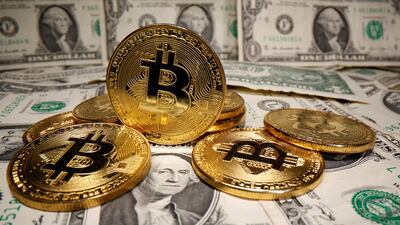The past week has been a rollercoaster ride for foreign exchange markets, as the British pound dropped to record lows against the US dollar.
Some analysts are warning that the pound and the euro are stuck in a “doom loop”. At the same time, the US dollar has risen by about 15 per cent this year to a 20-year high against a basket of currencies.
This is pushing an already overheated global economy closer and closer to recession. In short, a perfect storm is brewing.
The strength of the greenback can be easily explained by the actions of the US Federal Reserve, which has already unveiled four interest rate increases so far this year.
_____________
Watch: US Federal Reserve chief warns of 'pain' in reducing inflation
The largest of them, a 0.75 per cent increase in September, pushed the current base interest rate to 3 per cent to 3.25 per cent. The central bank has made it clear that it remains committed to more increases to combat rampant inflation — consequences be damned.
Global recession on the horizon
However, these consequences are likely to be serious, if not devastating.
The strength of the greenback is putting pressure on global economies and sending the US — and, subsequently, the rest of the world — closer to recession.
Credit Suisse places the probability of recession in the US at 30 per cent in the next six to 12 months, while some researchers are warning that the chances of a global recession are now as high as 98 per cent.
This is because the unprecedented strength of the US dollar is having an enormous negative effect on currencies and economies all over the world.
This includes the British pound and the euro, with the latter falling below parity with the dollar for the first time in 20 years.
The pound, meanwhile, has never been so low against the dollar, while inflation in the UK remains the highest in the developed world, at more than 10 per cent, according to official figures.
The need for change
All of this makes the case for a politically and economically independent global reserve currency undeniable.
Indeed, our current situation was predicted by the founders of Bitcoin in 2009, who famously coded a link to a newspaper article about the UK’s first bank bailout during the financial crisis of 2008-2009 into the genesis block of the chain — the first block ever created.
_______________
Statue of Bitcoin founder in Hungary — in pictures
These early cryptocurrency pioneers knew that the monetary policy being adopted in the developed world would only lead to rampant inflation that would cause the value of fiat currencies to steadily decline.
Bitcoin was born as an inflation-independent, globally accessible asset that could not be manipulated and controlled by any country, organisation or person.
In the early days of Bitcoin, the digital asset was compared to gold for its potential to become a hedge against inflation.
So far, 2022 has put this theory to the test, as the value of Bitcoin has plummeted alongside other risk assets.
However, we are now seeing Bitcoin come into its own, as the world’s biggest fiat currencies plummet.
A new world order
There was a sharp increase in trading volumes at the end of September as investors rushed to sell euros and pounds for Bitcoin, spurred by fears that their fiat money would continue to lose value.
The daily volume of Bitcoin purchased in euro and the pound hit a high of 50,000 BTC between September 22 and September 27, according to cryptocurrency data research company Messari.
founder of Laguna Labs
Meanwhile, BTC/GBP trading volumes on exchanges increased more than 10-fold from their historical average, to hit $881 million on September 26, according to finbold.com.
This tells us one thing: the world is ready for a global reserve currency that cannot be manipulated by government intervention.
People no longer want their financial futures to lie in the hands of central banks. They are ready for change — and cryptocurrency has the potential to bring this change to the masses.
Perhaps it won’t be Bitcoin. Since the early days, the first ever cryptocurrency has struggled to meet the requirements of a true global inflation hedge due to its volatility.
However, the foundations for a new world order are being laid as we speak.
There has never been a clearer, more poignant moment for the emergence of a decentralised, politically agnostic, inflation-proof and truly global method of payment and value storage.
It is time for cryptocurrency to show its true value.
Stefan Rust is the founder of Laguna Labs, a blockchain development house, and former chief executive of bitcoin.com
_________










